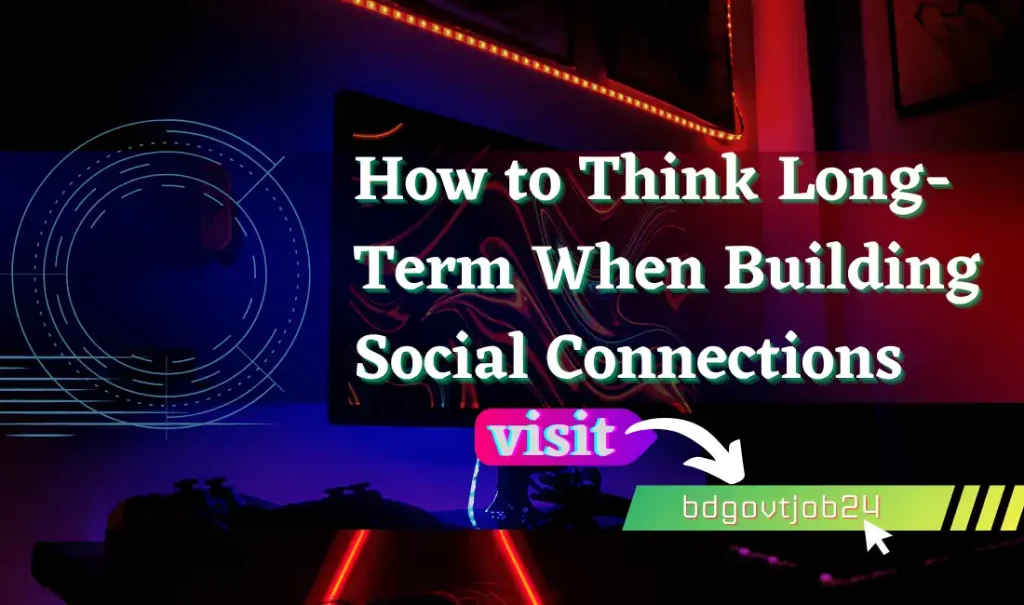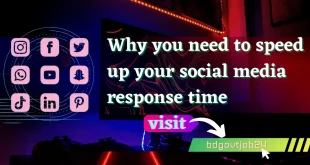Social media platforms give us the ability to quickly and easily connect with people all over the world. But what happens when we want to build long-term relationships with these people? In this article, we’ll explore some tips on how to think long-term when building social connections online.
When it comes to building lasting social connections, it can be hard to break the mold and think outside of the typical “Friend-Finder” app or website that’s popular among our age group. But thinking long-term can pay off in ways you may not have considered before – because if you’re looking for a lasting social connection, it might be worth investing in something more durable.
How to think about social connections when building a long-term relationship
When you’re looking to build a long-term social connection, it’s important to think about the bigger picture.
Here are a few tips to help you do just that:
1. Figure out what you want from the relationship. What are your goals for the relationship? Do you want to be friends, colleagues, or something more? Once you know what you’re looking for, it’ll be easier to find people who match your needs.
2. Be willing to invest time and effort into the relationship. No matter how great a friendship might start out, if one person isn’t willing to put in the work, it won’t last long. Be willing to go out of your way for the other person – unexpected gestures can go a long way!
3. Stay positive and supportive. A healthy social connection is based on mutual respect and support. If one person starts to feel like they’re constantly being put down or criticized, the relationship will quickly start to deteriorate. Keep your expectations realistic and be supportive of each other’s goals and achievements – even if they’re not yours.
The benefits of social networks
The benefits of social networks are clear: they make it easier to stay connected with people we care about, share information and ideas, and build relationships. But how do these networks help us think long-term?
How social networks can help you think long-term
One of the most important benefits of using social networks is that they make it easier to stay connected with people we care about. Our social networks act as a virtual water cooler, where we can share news, thoughts, and ideas with our friends without ever having to actually meet face-to-face. This allows us to keep up with the latest news, developments, and events without having to leave our homes or miss out on important conversations.
Social networks also allow us to share information and ideas with our friends. By sharing information and ideas with others on our social network, we can build relationships and learn from them. We can also gain insights into other people’s lives that we may not have been able to gain otherwise. This is especially valuable when it comes to making decisions – by gaining insights into other people’s perspectives, we can make better decisions based on all the information available to us.
Tips for building social connections
Building strong social connections can be a key to your success in life. But how do you go about doing it? Here are some tips for thinking long-term when building social connections.
1. Be genuine: When you connect with people, make sure that you are truly interested in them and their lives. Show your genuine interest by asking questions and listening intently. This will help you build trust and relationships that are beneficial both now and in the future.
2. Be patient: It can take time to develop strong social connections, so be patient. Don’t force friendships or relationships if they aren’t happening naturally. Let things develop at their own pace, and don’t get attached to any one person or group prematurely. You’ll be more likely to maintain these connections over time if you give them the opportunity to grow organically.
3. Don’t overdo it: Making too many social connections can actually have negative consequences. Too much interaction can lead to burnout, stress, and anxiety. Try to limit your interactions with others to those who are genuinely worth spending time with.
How to keep conversations going

Keeping conversations going is key to maintaining social connections. Keep in mind that the best way to keep a conversation going is to ask questions. Ask open-ended questions that allow for deeper discussion. For example, instead of asking what someone did this weekend, ask what their favorite part was. This will allow for more in-depth discussion and provide opportunities for new relationships to be formed.
When it comes to socializing, one of the most important things you can do is keep conversations going. This is especially important when it comes to building long-term social connections.
Here are a few tips to help you do just that:
1. Ask questions. One of the best ways to keep a conversation going is to ask questions. This allows you and your conversation partner to explore different topics and feelings. It also helps you learn more about each other.
2. Share your own experiences. Another great way to keep a conversation going is to share your own experiences. This allows you and your conversation partner to exchange information and insights in a more meaningful way.
3. Keep an open mind. One of the best things you can do when it comes to building social connections is keep an open mind. This means that you should be willing to try new things and explore different possibilities. It also means that you should be willing to listen attentively and respond positively to others’ comments and ideas.
When to end a conversation
The right time to end a conversation is when both parties are content and no longer need to talk. However, this isn’t always easy to determine. In some cases, it may be clear that the other person isn’t interested in talking anymore. In other cases, it may be more difficult to know when the conversation has ended.
Here are some tips for ending a conversation:
-Start by identifying the main point of the conversation. What was the main topic?
-Try to recap what was said and why it’s important. Was one of the points disputed?
-Is there any follow-up that could be done? If so, what would it be?
-If all of these factors can be determined and agreed upon, then it may be time to end the conversation. However, if there are still doubts or questions about when the conversation should end, then it can be continued until a definitive answer can be reached.



